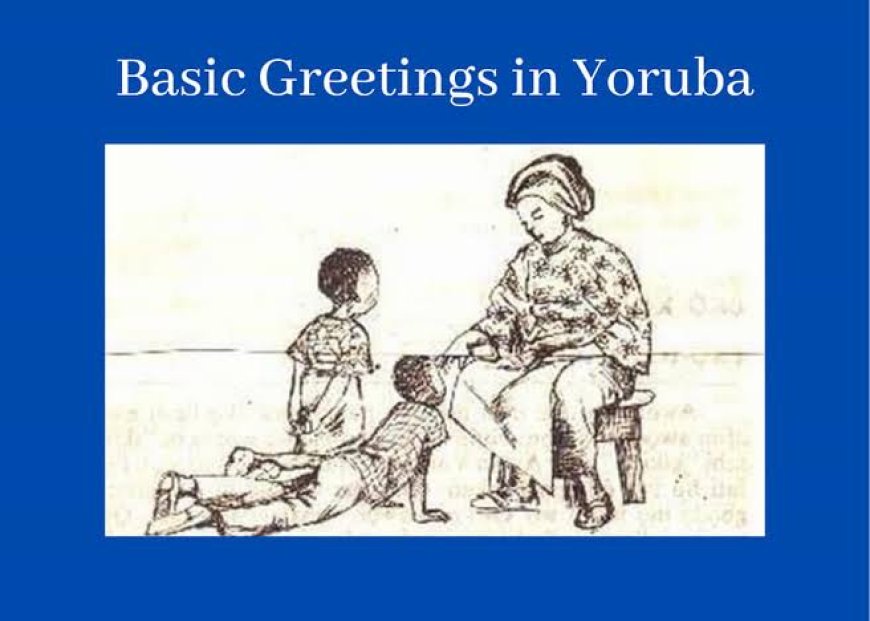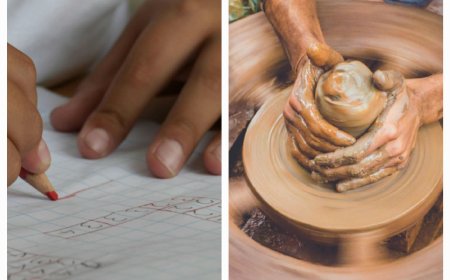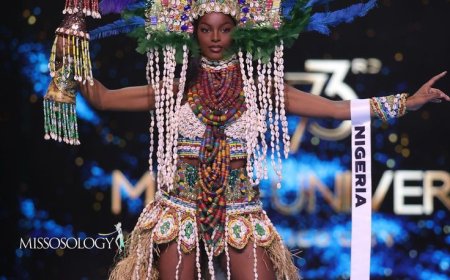THE ART OF YORUBA GREETINGS.
Yoruba greetings are an integral part of Yoruba culture, serving to show respect, acknowledge social hierarchy, and affirm the community. They are not just exchanges of words, but carry deep cultural significance and values. Yoruba greetings vary depending on the time of day, season, and even occupation. They can express empathy, gratitude, and politeness. Understanding the nuances of Yoruba greetings provides insights into the culture's values and communication practices. Greetings are essential for maintaining harmony and unity in Yoruba communities. They help establish social order and foster connections between individuals.

THE ART OF YORUBA GREETINGS.
In Yoruba culture, the art of greeting holds a great significance. It is a practice that encompasses not only the exchange of words but also a deep respect for elders, the acknowledgment of social hierarchy, and the affirmation of the community. Greeting is very vital to communication and community life among the Yoruba because it acts as a motivator of some sort. The absence of an appropriate greeting, whenever it is required can be the beginning of an age long hostility.
The Significance of Greetings.
In Yoruba culture, greetings are an integral part of daily interactions. They represent an admirable display of respect, courtesy, and communal bonding. The Yoruba people place immense value on greetings as an important aspect of social etiquette hence, greetings in Yoruba culture are not limited to interactions between elders and younger individuals.
A child or an adult who wakes up in the morning, meets people on their way, and does not greet them is regarded as being untutored and without the required home training.
Greetings in Yoruba
The Yoruba, renowned as the "greeting people," place immense significance on greetings in their daily lives. The study of these salutations offers valuable insights into the community's unique cultural values, as expressed through their physical gestures and spoken words.
Greetings embody the distinctive spiritual, material, intellectual, and emotional traits of different societal groups (Falola, 2004). Within the simplicity of these greetings lie complex codes of cultural expression, including expressions of hierarchy and respect.
For instance, "E pélé" in Yoruba is used to express empathy ( to say “sorry) . This particular greeting is reserved for elders, while "pele" is used among peers and juniors. These greetings are typically reciprocated with expressions of gratitude or acknowledgment. The fluidity of these greetings means they can be used outside of specific times or seasons.
Furthermore, "people" extends beyond the realm of mere salutations. It is offered as a gesture of sympathy in the face of physical ailments (e.g., sneezes, coughs), emotional distress (e.g., sadness, anger), and even lack of attention. It serves as a universal sign of friendliness and a polite way to acknowledge conversations.
By examining the various contexts and nuances of greetings in Yoruba culture, researchers can gain a deeper understanding of the social fabric, values, and communication practices within this vibrant and expressive community.
Yoruba have greetings for almost all human events. The following presents some of the events that form the basis for expressing greetings.
In the morning.
- Ekú dájì (good morning). This greeting is said very early in the morning before 6 am especially when the person being greeted is still in bed. Generally implies that there is an important and urgent issue to discuss.
- Ekú Ojúmó (good morning): This takes place during daybreak.
- E káàro (good morning): this is said before afternoon, or between morning and afternoon.
- E kú Iyáletà ( good morning): This is said when the sun is just rising, especially in tropical areas.
In the afternoon.
- E kásàsán (good afternoon): This is said between 12 noon and 4 pm.
In the evening
- E ku Irólè (good evening): This is said between 4 pm and 7 pm. When the sun sets.
- E kále ( good evening): This is said from 7 pm till the day is dark.
At Night.
- O dáàro ( good night): It means till morning ( in case of a visitor or when two or more people are parting in the night)
- Ka sunúnré (good night): This means “ may we sleep well" or Layo laji (May we wake up well) usually used when people are sure they might not see one another till the following morning.
SEASONS.
For seasonal greetings, the Yoruba, during the dry season will say: E ku Ogbele (dry ground); E ku Oye (harmattan); E ku Ojo, E ku Oririn, E ku Oginitin or E ku Otutu (all express cold weather or rainy season); E ku ipajuba (clearing in preparation for new farming season); E ku core (harvest); E ku Odun (different traditional seasonal festivals, now including Christian and Muslim festivals, and national public holidays, e. g. Christmas, Eid Fitr, Independence Anniversary).
Necessarily, all greetings should be responded to warmly and appropriately.
Occupational Greetings
Different occupations have their specific greeting codes.
- For the farmer (agbe), the Yoruba will say: Aroko bodunde o (May you be healthy till the land always).
- The palm wine tappers (Akope) are greeted in the following way: Igba a ro o (may climbing rope be supple for you).
- For hunters (Ode) arinpa ogun o (May Ogun provide games for you).
- For a priest: Aboru boye o or Ebo a fin o (may your sacrifice be acceptable) for which he responds: Aboye bo sise (may the result be favorable).
All these greetings, offered at every time of the day and seasons provide important insights into Yoruba's concept of time, more cyclical than linear. Time and season, and the events that depict them are believed to be re-enacted time in, time out. They do not give exact mathematical time. Time is meaningful at the point of the event and not at the mathematical moment.
When one expresses thanks in greetings, E seun ana, literally means thanks for the favor received yesterday.
Yesterday does not reckon the past 24-hour period in mathematical exactness but rather, it is conceived, often beyond the mathematical yesterday.
As long as one has not come across the person who did the favor after the event, or if one wants to appreciate the favor again, E seun ana, is appropriate but E seun O jo is believed to be best if the day of the event is far beyond the literal yesterday.
Greeting in Yoruba culture is a way to show respect, follow social order, and connect with others. It's a vital
part of Yoruba culture that helps maintain harmony and unity in the community.
What's Your Reaction?




































































































